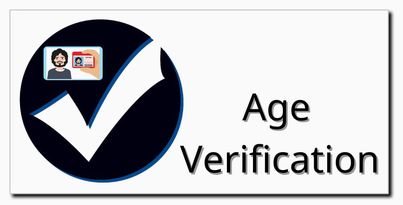In today’s digitally advanced sphere, minors can easily access healthcare websites and make online orders without their parents’ consent. As per a study by InternetMatters, children between 11 – 17 years are the most exposed to online criminal threats. Minors’ access to age-restricted healthcare services can bring several adverse effects from consuming life-threatening drugs to driving KYCC non-compliance risks for the institution.
Digital healthcare providers are subject to legal requirements such as COPPA, GDPR, and the Children’s Code. These regulations mandate medicare centers see minors’ protection as the topmost priority. Therefore, healthcare providers need to integrate online age verification solutions. This way, the adoption of telemedicine can be paced up without exposing children to harmful consequences. This blog covers ways age verification services benefit healthcare providers.
Online Age Verification and Regulatory Standards – Safety Nets for Minors
Telehealth services are enabling individuals to access online medical services, drug purchases, and confidential records. Simultaneously, minors are using their elders’ information to access adult-exclusive products. With the advent of online pharmacies and digital payment, ordering addictive drugs is no more a tough task for children.
In this customer-not-present sphere, healthcare providers need to bring in efficient AI-powered identity verification solutions. They help in authenticating clients remotely by using real-time selfies, KBA, and biometrics. Advanced IDV services foster online trust while ensuring healthcare providers stay compliant with KYCC regulations. Furthermore, medicare centers can restrict children’s access by preventing them from onboarding. Hence, digital age checks make telehealth services safer and overcome legal scrutiny.
The Children’s Online Privacy Protection Act (COPPA)
The Federal Trade Commission (FTC) makes amendments to the COPPA for coping with changing landscape of healthcare operations. As per the foremost requirement of this act, medicare service providers need to ensure they are not facilitating individuals under 13 years. While making age verification a strict liability, COPPA also obliges enhancing the security of personal information. Further points include:
- Publishing privacy policy to help users and parents (in case the medical assistance is for a minor) understand the use of data.
- Obtaining parents’ consent if an under-aged user is making an online drug purchase or applying for medical aid.
- Asking the users for elders’ permission before assisting them and cross-validating the consent form.
- Storing and protecting children’s data while refraining from using it as public information.
- Integrating efficient age verification online solutions to ensure secure telemedicine services.
Knowledge-Based Authentication (KBA)
FTC approved KBA as an efficient method to verify individuals under the COPPA. In order to ensure the implementation of this advanced technique, healthcare providers need to bring in AI-powered identity verification solutions. While they automate the patient onboarding process, digital age authentication services also make KBA reliable.
During registration, the system presents a series of questions to cross-check individuals whose answers are limited to the actual information holder. Furthermore, the probability of minors’ guessing answers to them is quite low. Hence, telehealth service providers can ensure compliance with COPPA and other KYCC regulations.
Benefits of Integrating Digital Age Checks for Healthcare Providers
Cybercriminals see minors as easy targets as they are easy to manipulate. Moreover, fraudsters take over accounts which leads to financial and reputational loss for both actual holders as well as medicare centers. Therefore, to limit minors’ manipulation, healthcare providers need to incorporate digital age checks. These AI-powered IDV mechanisms are challenging to escape. Furhtermeo benefits of these advanced age verification solutions include:
Smooth and Secure Onboarding
Establishing efficient identity verification systems guarantees a smooth and secure onboarding process. Healthcare intermediaries including cannabis merchants, pharmacies, and others providing AO services are the most in need to integrate age authentication solutions. With automated AI-powered biometric tools, telemedicine providers can add extra security. By scanning facial features and detecting liveness, minors’ identification becomes easier.
Avoid Non-Compliance Penalties
In case any healthcare center or its affiliate fails to ensure compliance or infection with age verification regulatory standards such as COPPA, they will have to pay hefty penalties. Furthermore, dispatching AO drugs to minors can bring serious legal repercussions. However, a thorough identification to verify age of individuals can mitigate these risks.
Corporate Social Responsibility
Medicare service providers need to ensure corporate social responsibility along with regulatory compliance. Protecting minors from developing addictions due to easy drug purchases is one of the major responsibilities of healthcare centers. Therefore, while embracing digitization, medical service providers should consider age verification solutions a must-have.
Key Takeaway
AI-powered age verification solutions help healthcare providers to protect digital medical services. While minors can easily access AO services, drugs, and other benefits, it has become necessary to place necessary preventions in their way. By making automated age checks a part of their IDV system, healthcare providers can not only ensure regulatory compliance but also pace up the adoption of telemedicine services













